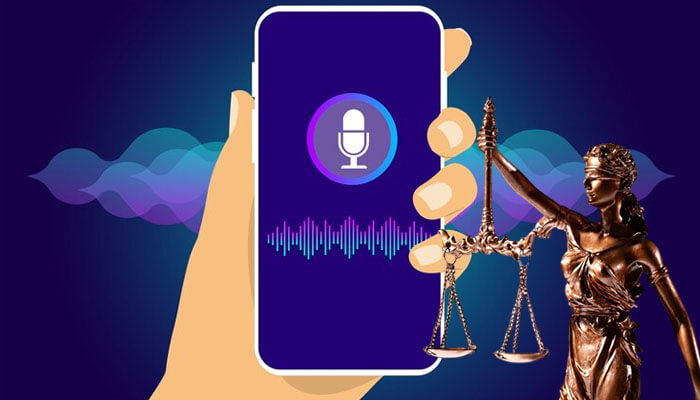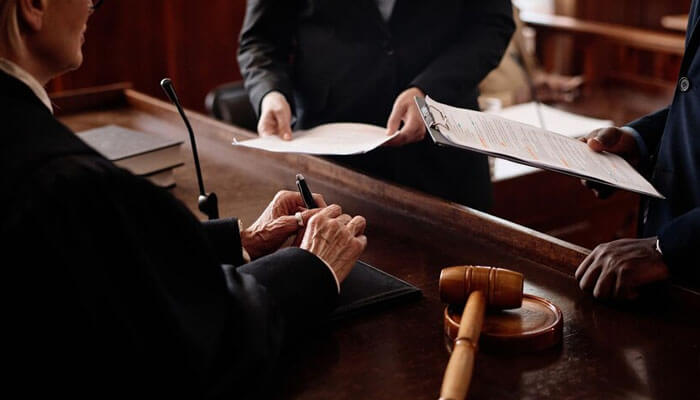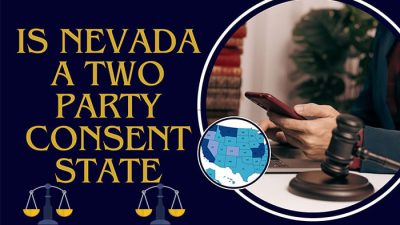Understanding the legal implications of recording conversations, especially in this era where technology makes audio recording easier than ever but can you record someone in Maryland? Yes, but the Maryland stance on this issue has significant implications for the people and companies operating within the borders. State regulations affect the lawful collection and utilization of recordings that show impacts on both private and professional communications. Is Maryland a Two Party Consent State? Yes and this article helps you in detail to know about the solution for this query, Maryland recording laws, Maryland two-party consent exceptions and many more.
Is Maryland a One Party Consent State/ Two Party Consent State?
According to Maryland’s two-party consent law, which is a part of the Maryland Wiretapping and Electronic Surveillance Act, states that before recording any private conversation, all parties must give their consent. This applies for all where conversations take place over the phone, in person, or online. This law emphasizes mutual consent, which further demonstrates Maryland’s commitment to privacy.
Maryland’s two-party consent rule places a greater responsibility on individuals to obtain consent than other states’ one-party consent laws. The law applies in the situations where there is reasonable expectation of privacy like homes or privacy meetings, phone calls, online communications.
Maryland Video Recording Laws:
It is illegal for anyone to install or influence another person to place a camera on real estate where a private residence is situated purposefully and covertly to observe someone inside the private residence. For example: It is against the law for Installing or using a surveillance camera to watch your neighbor while they are inside their private home or on their property.
Maryland Two Party Consent Exceptions:
There are Maryland Two Party Consent exceptions particularly in the cases involving the public and law enforcement. Consent from all parties is typically not required for conversations that take place in public spaces where there is no reasonable expectation of privacy. This acknowledges that individuals can be overheard or recorded in public places.
If law enforcement gets a court warrant, exceptions allow agents for conducting investigations to intercept communications without the consent of all parties. This requires demonstrating probable cause while striking a balance between privacy protections and investigative needs.
However, the following are not prohibited by state law:
- Installing a camera in a private residence by an adult resident.
- Installing a camera on real property with no intention secretly. Observing a person inside the private residence.
- Installing a camera with the intention of secretly observing a person inside a private residence after obtaining consent from an adult resident or an adult resident’s guardian.
- Lawful observation by a law enforcement officer performing official duties.
- Filming by an individual or member of the media using a camera which is clearly visible.
- Filming a private residence using a camera that is not located in the real property where the private residence is located.
Criminal Consequences and Civil Liability:
In Maryland, there are severe criminal penalties for breaking the two-party consent requirement. Because of the state’s strong commitment to protect privacy, it is illegal to record a private conversation. Penalties include fines of up to $10,000 and up to five years in prison. Long-term consequences from a felony conviction may also include a permanent criminal record that may affect the ability to find employment and other aspects of life.
Under Maryland’s wiretapping and electronic surveillance law, people who record others without consent may face civil liability in addition to criminal penalties. Unauthorized recording victims may file a civil lawsuit to get financial compensation for the privacy violation.
Damages may include financial losses, emotional distress or reputational harm. To prevent future infractions and discourage severe behavior, courts can occasionally grant punitive damages. Encouraging people to seek justice for privacy violations, victims may be able to recover legal fees and litigation costs.
Acceptability in Court for Illegally Obtained Recordings:
In criminal and civil court proceedings, recordings that violate Maryland’s two-party consent law are usually not admissible as evidence under Md. Code Ann., Cts. & Jud. Proc. 10-405. By ensuring that recordings which are collected illegally cannot be utilized to gain a legal advantage, this rule discourages violations of privacy rules.
Courts might allow such recordings if they are essential in proving a serious crime, like extortion or violent threats. Even in these situations, courts must balance the right for the privacy of the parties concerned with the public interest in admitting the evidence. Attempting to play recordings that were obtained illegally in court may also lead to further legal consequences, like fines or penalties for violating state law.
The recording laws in Maryland place a strong emphasis on respecting the law and protecting privacy. People might seek legal advice to manage these complex regulations and to avoid potential legal hazards.
Implications for Interstate Communications:
Under Maryland’s two-party consent law, interstate communications offer unique challenges. The more strict state’s consent laws usually apply when parties in different states conversely. For example, Maryland’s two-party consent requirement often takes priority when a Maryland resident interacts with an individual in a state that has one-party consent.
When individuals are unaware of the different legal requirements, disputes can occur and there may be legal consequences. To prevent complications, legal professionals usually suggest getting all parties to give express consent.
Employer Responsibilities and Compliance:
Maryland’s two-party consent law requires employers to use caution while monitoring or recording employee interactions. Whether a conversation takes place in person, over the phone, or electronically, employees must give their consent before it can be recorded. This applies especially for the practices like monitoring customer support calls or recording meetings for instructional purposes.
Employers should set up clear policies and procedures for recording conversations to ensure compliance. To avoid legal issues, this should be explained to employees and consent should be recorded. Risks can be further reduced by educating staff members about legal requirements and emphasizing the value of getting consent.
Conclusion:
I hope this article helps you to know in detail about Maryland recording laws, Maryland two-party consent exceptions and came to know that Maryland is one of the two party consent states.





